Politics
UK’s Starmer reshuffles top team to restore authority after Rayner blow
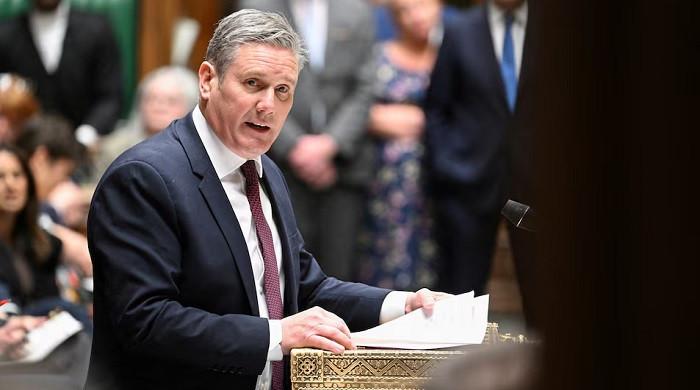
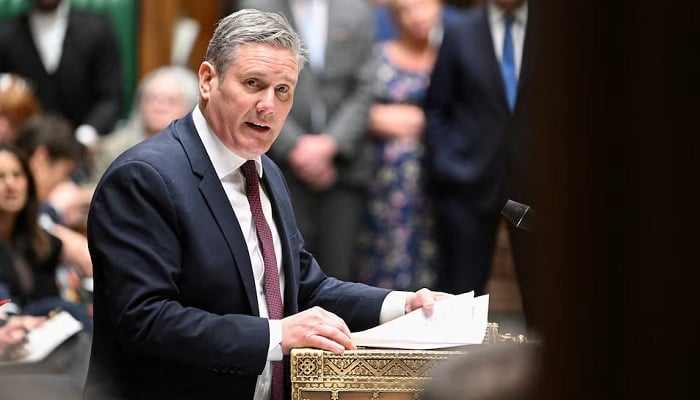
- Starmer appoints new deputy, foreign, interior ministers.
- Reshuffle sparked by resignation of Rayner.
- Starmer sad to lose ‘trusted colleague.
British Prime Minister Keir Starmer brought in a new deputy and foreign and interior ministers on Friday in a sweeping reshuffle intended to restore his authority after the resignation of his deputy, Angela Rayner.
Starmer moved foreign minister David Lammy to become deputy prime minister and replaced him with interior minister Yvette Cooper. She was, in turn, replaced by justice secretary Shabana Mahmood. All are loyal, trusted hands.
After reshaping his Downing Street team last week to bolster his economic advice, a ministerial reshuffle had been expected. Rayner’s departure meant it was much deeper than widely predicted, forcing Starmer to draw a line under more than a week of distracting speculation over her tax affairs.
Starmer could do little to protect Rayner after Britain’s independent adviser ruled that she had breached the ministerial code by failing to pay the correct tax.
“Angela is a ‘big beast’ and hard to replace,” said one Labour lawmaker, adding that the three new appointments were “sound” if not overly exciting.
While Lammy has been given the position of deputy prime minister, he has also been forced to hand over the much sought-after role of foreign secretary and replace Mahmood at justice.
Cooper is one of Labour’s most senior figures after serving former Prime Minister Gordon Brown. Her appointment will be seen as a promotion of sorts after overseeing the government’s often criticised policy to tackle illegal migration.
Mahmood, 44, is also seen as a “safe pair of hands” in Labour, a no-nonsense politician who has not been scared to take bold action while running the justice system.
Loyalty is seen as vital by Starmer, who has suffered the most ministerial resignations – outside government reshuffles – of any prime minister early in their tenure in almost 50 years.
“There is a sense at the moment that they don’t know what they are doing and what they stand for,” Chris Hopkins, political research director at polling firm Savanta, told Reuters.
Regrets
Rayner, 45, was the eighth, and the most senior, ministerial departure from Starmer’s team, and the most damaging yet after the British leader offered her his support when she was first accused of avoiding 40,000 pounds ($54,000) in tax.
Rayner apologised to Starmer in her resignation letter. “I deeply regret my decision to not seek additional specialist tax advice,” she said.
She also stepped down as a minister and as deputy party leader, a position that Lammy will now be in pole position for.
The independent adviser on ministerial standards ruled Rayner had broken the ministerial code – rules to ensure the conduct of politicians meets the standards of public service – because she failed to heed a warning within legal advice, which she said she had relied on to seek expert advice on her complicated financial situation.
Rayner’s resignation has put more pressure on Starmer, with Labour trailing Nigel Farage’s populist Reform UK in the polls.
Starmer faces difficult state spending and tax choices as he seeks to repair the centre-left party’s image after they also came under fire for accepting expensive items, including clothing and concert tickets from donors, before they were forced to water down cuts to the welfare budget.
On the first day of Reform’s party conference in the central English city of Birmingham, Farage brought forward his speech by three hours to address Rayner’s resignation.
He said the Labour government was in “deep crisis” and the next election may take place in 2027, implying that Labour, which has a big majority and does not need to call an election until 2029, may find itself unable to govern.
“Despite all the promises that this would be a new, different type of politics, is as bad, if not worse, than the one that went before,” he told the audience to loud applause.
Rayner had registered a new home in the southern English seaside resort of Hove as her primary residence, after she sold her share of her family home in northern England to a trust that was set up for one of her sons, who has lifelong disabilities.
Rayner said she had believed she would not have to pay the higher rate of tax charged when buying a second home. But after media reports drew attention to the fact she may have avoided 40,000 pounds, she took further legal advice and said she had made a mistake and would pay the additional tax.
Politics
The year of 2025 is ‘failures and defeats’ for Indian foreign policy
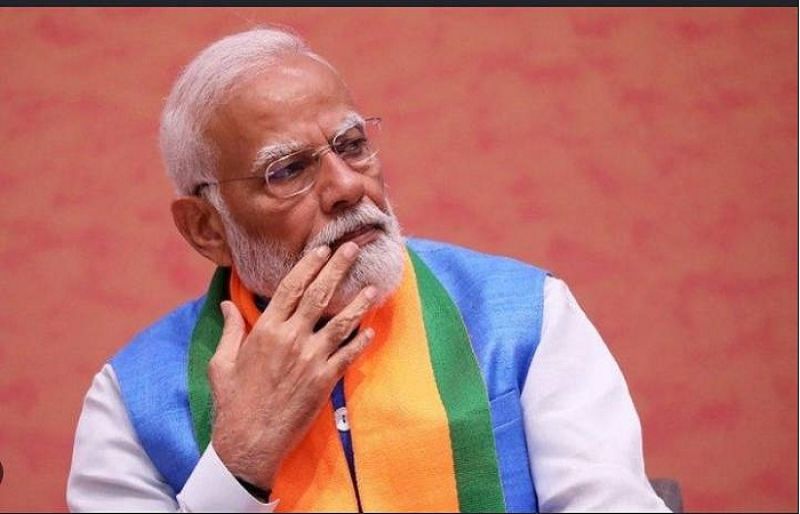
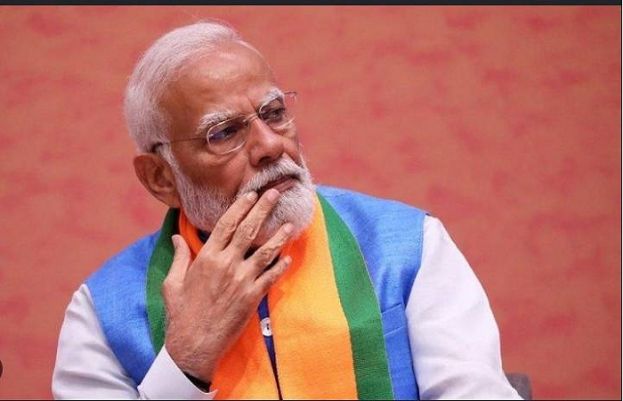
The year 2025 ended as a year of failures and defeats in Indian foreign policy as New Delhi faced a barrage of diplomatic setbacks at the global leve.Expectations in India related to Prime Minister Narendra Modi failed to materialize.
Indian newspaper The Hindu described 2025 as a year of broken promises in the country’s foreign policy due to failure to meet expectations.
According to The Hindu, symbolic diplomacy, personal relationships and narrative-building could not prove to be a substitute for real economic, military and diplomatic power.
According to The Hindu newspaper, India made promises not only to itself but also to its partners that it did not have the influence and power to implement.
On relations with the US, The Hindu newspaper says that 2025 has proven to be the most difficult year for India this century.
The 25 percent tariff, additional restrictions on Russian oil and H-1B visa bans have proven that India’s partnership with Washington is conditional and self-serving.
According to The Hindu newspaper, India has been reduced to a limited role in the US National Security Strategy 2025 compared to 2017.
Despite all the high-level meetings regarding China and Russia, no tangible security progress could be made on the Line of Actual Control.
Investment barriers remained and India remained limited to a mere symbolic presence.
In the energy sector, The Hindu newspaper clarified that India backtracks on Russian oil deal under US pressure.
The Hindu newspaper calls Pahalgam false flag operation a serious security failure.
It was also admitted that there was no global diplomatic support for Indian military operations after the Pahalgam attack.
The silence on aircraft losses after the Indian operation damaged India’s reputation.
The announcement of the Saudi-Pakistan bilateral defence agreement was an additional blow to India.
According to The Hindu newspaper, Indian analysts now consider Pakistan’s leadership to be “tough and capable of organizing”.
The Hindu newspaper admits that India-Bangladesh relations have reached their highest level ever.
Finally, The Hindu newspaper warns that India is moving away from the “Vishu Guru” narrative and towards the “Vishu Victim” one.
According to the newspaper, India’s blaming of others is the biggest obstacle to reform and realistic policymaking.
According to experts, The Hindu newspaper has exposed India’s weak diplomacy.
India must understand that only showy diplomacy cannot achieve practical results.
The newspaper’s admission of diplomatic failure confirms Pakistan’s position that India’s foreign policy is mostly based on optics, not practical results.
This analysis by The Hindu newspaper indicates the fact that India is no longer an indispensable strategic partner for the United States.
This point reinforces Pakistan’s position that India’s deterrence narrative has failed to convince at the global level.
The newspaper’s admission that some countries supported Pakistan’s military operations has exposed India’s diplomatic failure.
The Indian newspaper The Hindu’s admission of the capabilities of the Pakistani leadership negates the Indian claim that Pakistan is weak or isolated on the global level.
India, which has expressed concern over the atrocities on minorities in Bangladesh, must condemn and prevent such attacks on minorities in its own country.
Politics
Israel becomes first country to formally recognise Somaliland as independent state
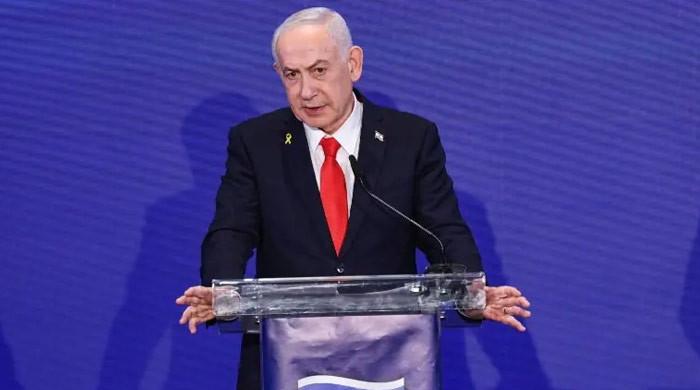
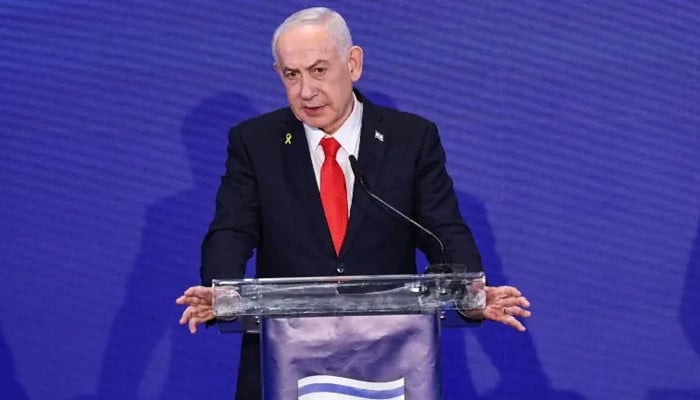
- African Union rejects recognition of Somaliland.
- Somalia condemns Israel’s move as unlawful.
- Egypt, Turkey, Djibouti discuss Horn of Africa tensions.
Israel became the first country to formally recognise the self-declared Republic of Somaliland as an independent and sovereign state on Friday — a decision that could reshape regional dynamics and test Somalia’s longstanding opposition to secession.
Prime Minister Benjamin Netanyahu said Israel would seek immediate cooperation with Somaliland in agriculture, health, technology and the economy. In a statement, he congratulated Somaliland’s president, Abdirahman Mohamed Abdullahi, praised his leadership and invited him to visit Israel.
Netanyahu said the declaration “is in the spirit of the Abraham Accords, signed at the initiative of President Trump.”
The 2020 accords were brokered by Trump’s first administration and included Israel formalising diplomatic relations with the United Arab Emirates and Bahrain, with other countries joining later.
Netanyahu, Foreign Minister Gideon Saar and Somaliland’s president signed a joint declaration of mutual recognition, the Israeli statement said.
Abdullahi said in a statement that Somaliland would join the Abraham Accords, calling it a step toward regional and global peace. He said Somaliland was committed to building partnerships, boosting mutual prosperity and promoting stability across the Middle East and Africa.
But Somalia’s government condemned Israel’s move as an “unlawful step” and a “deliberate attack” on its sovereignty, rejecting any recognition of Somaliland, according to a statement from the prime minister’s office.
“The federal government affirms its determination to pursue all necessary diplomatic, political, and legal measures, in accordance with international law, to defend its sovereignty, unity, and internationally recognised borders,” the statement said.
Egypt said Foreign Minister Badr Abdelatty held phone calls on Friday with his counterparts from Somalia, Turkey and Djibouti to discuss what they described as dangerous developments in the Horn of Africa following Israel’s announcement.
The ministers condemned Israel’s recognition of Somaliland, reaffirmed their full support for Somalia’s unity and territorial integrity, and warned that recognising breakaway regions posed a threat to international peace and security, Egypt’s foreign ministry said.
The African Union also rejected any recognition of Somaliland, reaffirming its “unwavering commitment” to Somalia’s unity and territorial integrity and warning that such moves risked undermining peace and stability across the continent, the AU Commission chair said.
Somaliland has enjoyed effective autonomy — and relative peace and stability — since 1991 when Somalia descended into civil war, but the breakaway region has failed to receive recognition from any other country.
Over the years, Somalia has rallied international actors against any country recognising Somaliland.
The former British protectorate hopes that recognition by Israel will encourage other nations to follow suit, increasing its diplomatic heft and access to international markets.
In March, Somalia and Somaliland denied receiving any proposal from the United States or Israel to resettle Palestinians from Gaza, with Mogadishu saying it categorically rejected any such move.
Politics
Thailand, Cambodia agree to ‘immediate’ ceasefire: joint statement
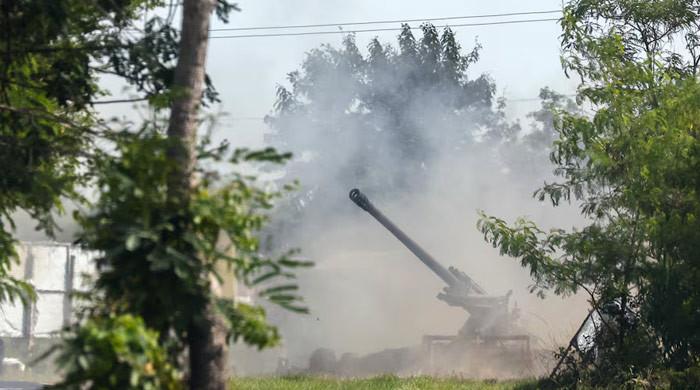

- Ceasefire deal follows days of talks between Thailand, Cambodia.
- Nearly one million displaced by Thailand-Cambodia border clashes.
- Both sides agree to cooperate on demining efforts, combating cybercrime.
Thailand and Cambodia agreed to an “immediate” ceasefire on Saturday, the two countries said in a joint statement issued by the Cambodian side, pledging to end weeks of deadly border clashes.
The neighbours’ long-standing border conflict reignited this month, shattering an earlier truce and killing at least 47 people, according to official counts. Around a million people have also been displaced.
“Both sides agree to an immediate ceasefire after the time of signature of this Joint Statement with effect from 12:00 hours noon (local time) on 27 December 2025, involving all types of weapons, including attacks on civilians, civilian objects and infrastructures, and military objectives of either side, in all cases and all areas,” said the statement signed by the two countries´ defence ministers.
Both sides agree to freeze all troop movements and allow civilians living in border areas to return home as soon as possible, the statement said.
They also agree to cooperate on demining efforts and combating cybercrime.
The ceasefire will go into effect at 12:00pm (0500 GMT) to end the battling over a smattering of ancient temples in disputed zones along the two countries´ shared frontier.

It comes after three days of border talks announced following a crisis meeting of foreign ministers from the Association of Southeast Asian Nations (ASEAN), of which both Cambodia and Thailand are members.
The United States, China and Malaysia also pushed for the warring neighbours to resume their ceasefire.
The three countries brokered a truce to end five days of deadly clashes in July, but the ceasefire was short-lived.
-
Sports1 week ago
Alabama turned Oklahoma’s College Football Playoff dream into a nightmare
-

 Entertainment1 week ago
Entertainment1 week agoRare look inside the secret LEGO Museum reveals the system behind a toy giant’s remarkable longevity
-

 Business1 week ago
Business1 week agoGold prices in Pakistan Today – December 20, 2025 | The Express Tribune
-

 Business1 week ago
Business1 week agoRome: Tourists to face €2 fee to get near Trevi Fountain
-

 Entertainment1 week ago
Entertainment1 week agoIndia drops Shubman Gill from T20 World Cup squad
-

 Entertainment1 week ago
Entertainment1 week agoZoe Kravitz teases fans with ring in wedding finger
-

 Tech1 week ago
Tech1 week agoWe Tried and Tested the Best Gifts for Plant Lovers With Our Own Green Thumbs
-

 Fashion1 week ago
Fashion1 week agoColumbia launches star-studded US Curling team uniforms for 2026






